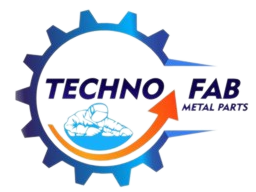Innovating Petroleum Sector Products with Advanced Metal Fabrication
Title: Technofab Metal: Innovating Petroleum Sector Products with Advanced Metal Fabrication
Introduction:
Technofab Metal, a leading metal fabrication company, is at the forefront of providing innovative solutions to the petroleum sector. With expertise in metal fabrication and a deep understanding of the industry’s unique requirements, Technofab Metal has developed a range of high-quality products that cater to the diverse needs of the petroleum sector. In this blog post, we will explore some of the exceptional petroleum sector products offered by Technofab Metal and their contributions to the industry.
1. Storage Tanks and Vessels:
Technofab Metal specializes in designing and manufacturing robust storage tanks and vessels that are essential for the petroleum industry. These tanks are fabricated using premium-grade metals and meet the industry’s stringent safety and quality standards. Whether it’s storage tanks for crude oil, gasoline, diesel, or other petroleum products, Technofab Metal delivers durable and customized solutions that ensure optimal storage and efficient handling of these valuable resources.
2. Process Equipment:
Petroleum refineries and processing plants require specialized equipment to carry out various operations effectively. Technofab Metal excels in fabricating process equipment such as heat exchangers, pressure vessels, distillation columns, and reactors. These critical components are crafted with precision, incorporating advanced materials and welding techniques to withstand the harsh conditions and demanding processes of the petroleum industry.
3. Pipeline Components:
The petroleum sector heavily relies on an extensive network of pipelines for the transportation of oil, gas, and other petroleum products. Technofab Metal offers a range of pipeline components, including fittings, valves, flanges, and connectors, that are crucial for ensuring safe and efficient pipeline operations. These components are manufactured to exact specifications, guaranteeing reliable performance and leak-free connections throughout the pipeline infrastructure.
4. Offshore Structures:
As exploration and production move into offshore territories, the petroleum industry requires robust and reliable offshore structures. Technofab Metal specializes in fabricating offshore platforms, drilling rigs, subsea equipment, and other structures necessary for offshore operations. These structures are engineered to withstand the challenging marine environment, offering durability, safety, and longevity.
5. Environmental Solutions:
Technofab Metal is committed to supporting sustainable practices within the petroleum sector. The company develops environmental solutions, such as vapor recovery units, emission control systems, and pollution abatement equipment, to help minimize the industry’s environmental impact. These solutions ensure compliance with regulatory standards while promoting responsible and eco-friendly operations.
Conclusion:
Technofab Metal’s dedication to innovation and expertise in metal fabrication has positioned it as a trusted provider of high-quality products for the petroleum sector. From storage tanks and vessels to process equipment, pipeline components, offshore structures, and environmental solutions, Technofab Metal delivers tailor-made solutions that meet the specific needs of the industry. By leveraging advanced metal fabrication techniques, the company contributes to the efficiency, safety, and sustainability of the petroleum sector, playing a vital role in its continued growth and success.
Remember to customize the content according to your specific products, their features, and the unique value they offer to the petroleum sector.
